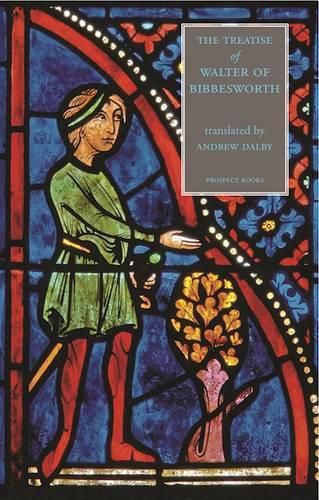Readings Newsletter
Become a Readings Member to make your shopping experience even easier.
Sign in or sign up for free!
You’re not far away from qualifying for FREE standard shipping within Australia
You’ve qualified for FREE standard shipping within Australia
The cart is loading…






The Treatise of Walter of Bibbesworth is a didactic poem in Anglo-Norman which surveys a host of practical matters, ranging from childbirth and our passage through life, to estate management and life in fields, workshops, to activities in the home, the kitchen and the dining-hall, to the flora and fauna (and even the weather) of thirteenth-century England. Its didactic purpose was to teach the French language, in other words, it was not so much the topics discussed but the Anglo-Norman or French words used to describe them. It was a vocabulary, albeit a creative one. To this end, many of the words were glossed, in the original manuscript and subsequent versions, with their Middle English equivalents. The author and the intended audience for this poem are discussed in the introduction, as are also its date, the language, modern interpretations and its bibliography. Anglo-Norman text with parallel translation.
$9.00 standard shipping within Australia
FREE standard shipping within Australia for orders over $100.00
Express & International shipping calculated at checkout
The Treatise of Walter of Bibbesworth is a didactic poem in Anglo-Norman which surveys a host of practical matters, ranging from childbirth and our passage through life, to estate management and life in fields, workshops, to activities in the home, the kitchen and the dining-hall, to the flora and fauna (and even the weather) of thirteenth-century England. Its didactic purpose was to teach the French language, in other words, it was not so much the topics discussed but the Anglo-Norman or French words used to describe them. It was a vocabulary, albeit a creative one. To this end, many of the words were glossed, in the original manuscript and subsequent versions, with their Middle English equivalents. The author and the intended audience for this poem are discussed in the introduction, as are also its date, the language, modern interpretations and its bibliography. Anglo-Norman text with parallel translation.